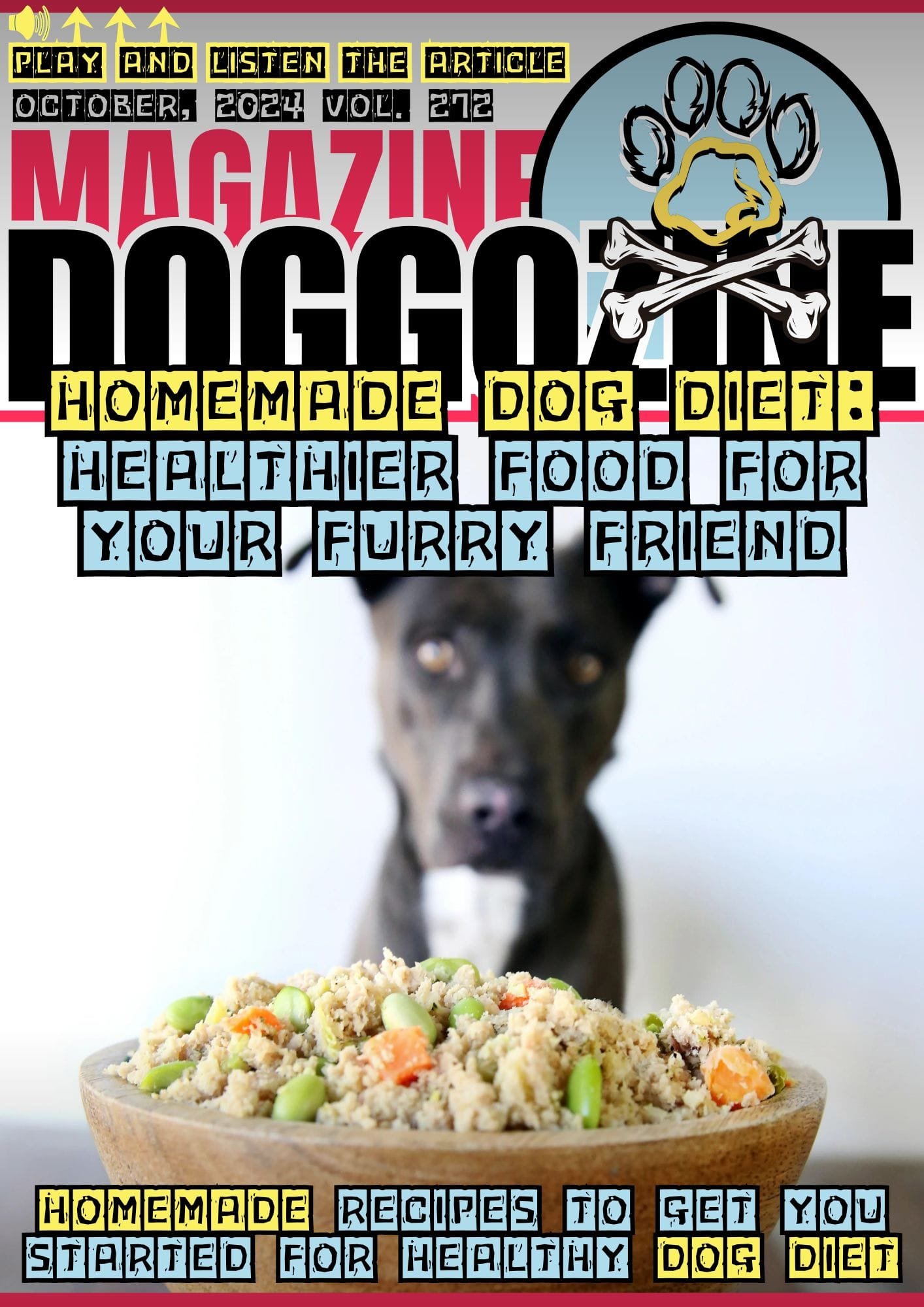
WHY CONSIDER HOMEMADE DOG DIET?
When it comes to choosing the best diet for your canine companion, the decision to switch from commercial dog food to homemade meals can be driven by numerous motivations. Increasingly, dog owners are expressing concerns regarding the composition of commercially available options.
Creating A Homemade Food Diet For Healthy Dog Lifestyle
One of the primary motivations for this shift is the presence of additives, preservatives, and artificial ingredients in many commercial dog foods. Such components can be detrimental to the long-term health of your dog, potentially leading to allergies, digestive issues, and other chronic problems.
In contrast, the homemade dog diet allows you to have complete control over what your furry friend consumes. This transparency is crucial for pet owners who are mindful of the nutrition and well-being of their dogs. By preparing your dog’s meals at home, you can ensure that the ingredients are fresh, natural, and free from harmful chemicals. This control enables you to tailor the diet based on your dog’s specific needs, preferences, and potential health conditions.
Providing a fresh and natural diet has been associated with several health benefits for dogs. These advantages often include improved digestion, better weight management, enhanced energy levels, and a shinier coat. Many dog owners notice positive outcomes such as reduced incidences of food-related allergies and stronger immune systems, reinforcing the decision to opt for homemade dog diet.
Beyond the physical benefits, there is a significant psychological satisfaction in preparing meals for your dog. The process of cooking and selecting wholesome ingredients reflects a deeper bond and care for your pet’s health and happiness. It is a way to ensure that every mealtime is nourishing and enjoyable, leading to a healthier and happier furry friend overall.
🔑 Key Points: The homemade dog diet allows you to have complete control over what your furry friend consumes. This transparency is crucial for pet owners who are mindful of the nutrition and well-being of their dogs
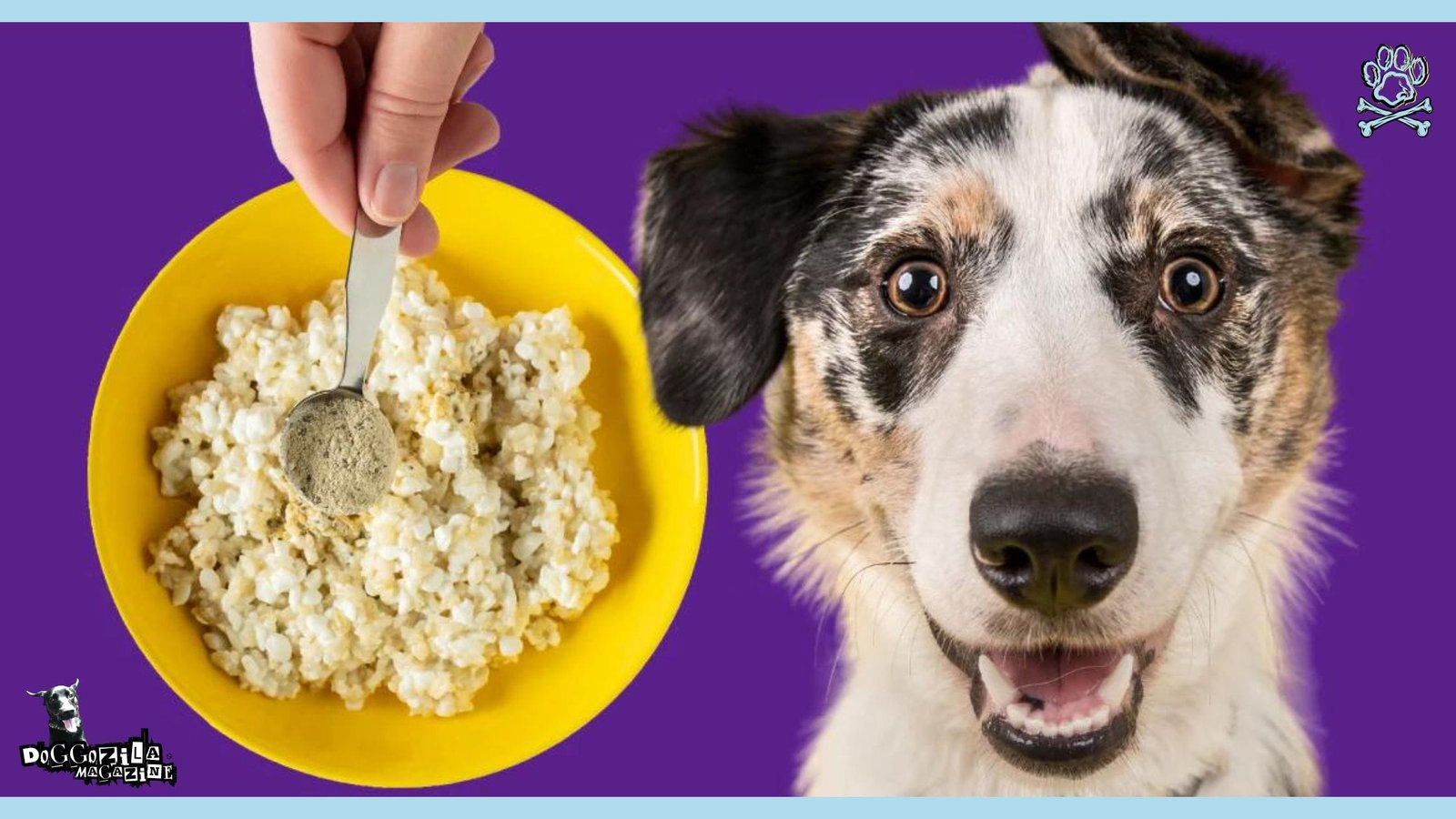
NUTRITIONAL NEEDS OF DOGS
Dogs, much like humans, require a balanced diet to maintain optimal health. This means ensuring they intake the right combination of proteins, fats, carbohydrates, vitamins, and minerals. Protein is a fundamental component, aiding in muscle growth and repair. Sources like chicken, turkey, fish, and beef are excellent options. Fats serve as a vital energy source and are essential for maintaining healthy skin and a shiny coat. Healthy fats can be sourced from fish oil, flaxseed, and poultry fat.
Essential Dietary Requirements For Your Dog
Carbohydrates provide energy and are crucial for a well-rounded diet. Ingredients like sweet potatoes, rice, and oats can be beneficial. However, it is important to remember that not all carbohydrates are created equal, and the quality of carbs can significantly impact a dog’s health. Vitamins and minerals, although required in smaller quantities, play an indispensable role. Vitamins like A, D, E, and K are fat-soluble, while B-complex and C are water-soluble. Dogs also need minerals such as calcium, phosphorus, and potassium for bone health and overall bodily functions.
The life stage, size, and breed of a dog can significantly influence its dietary requirements. Puppies, for instance, need higher protein and calorie content to support growth, while adult dogs require a balanced diet to maintain their health. Senior dogs might need lower-calorie diets to prevent weight gain, along with joint-supporting supplements. Large breed dogs have different nutritional needs compared to smaller breeds, often needing more joint-supportive nutrients.
It is crucial to manage and balance a dog’s diet carefully to avoid nutrient deficiencies or imbalances. Lack of essential nutrients can lead to health issues such as weakened immune systems, bone disorders, or skin problems. Therefore, understanding and catering to the specific nutritional needs of your dog is vital for ensuring a healthy, happy life for your furry friend.
🔑 Key Points: Always ensure that your dogs intake have the right combination of proteins, fats, carbohydrates, vitamins, and minerals.
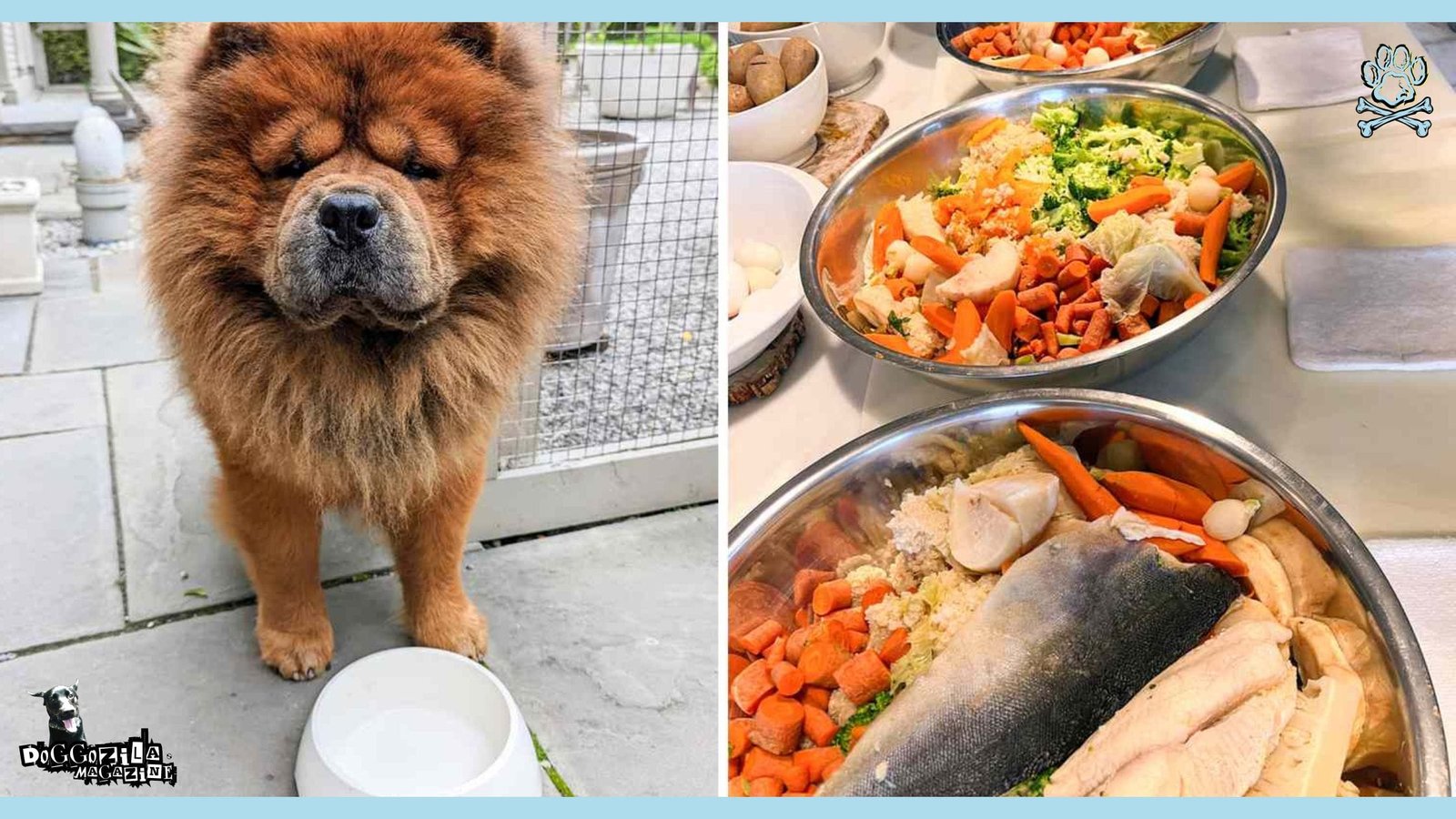
PLANNING A BALANCED HOMEMADE DOG DIET
Formulating a balanced and complete diet for your dog is a critical aspect of ensuring their overall health and well-being. The first step in this process involves consulting a veterinarian or a pet nutritionist. These professionals can tailor a diet specific to your dog’s individual needs, taking into account factors like age, weight, breed, activity level, and any existing health conditions.
Sourcing Ingredients with High-Quality Options
When sourcing ingredients for homemade dog diet, prioritize high-quality options. Opt for lean meats, like chicken or turkey, as they provide essential proteins. Incorporating a variety of vegetables and grains, such as sweet potatoes and brown rice, ensures that your dog receives a comprehensive array of vitamins and minerals.
Avoid ingredients that are toxic or harmful to dogs, such as onions, garlic, and chocolate. Portion control is another crucial element in maintaining a balanced homemade dog diet. Overfeeding can lead to obesity and associated health issues, while underfeeding may result in nutritional deficiencies. Utilize portion guidelines provided by your vet or pet nutritionist, and adjust as needed based on your dog’s energy levels and weight changes.
Meal Prep Strategies for Homemade Dog Diet
Integrating dietary variety helps to prevent nutritional imbalances and keeps mealtime interesting for your furry friend. Rotate different sources of protein, vegetables, and carbohydrates to provide a well-rounded nutrient profile. This practice not only enhances the flavor of the meals but also ensures that your dog benefits from a diverse range of nutrients.
Meal prep strategies for healthy diet can significantly simplify the process of feeding your dog homemade food. Prepare meals in bulk and portion them out into daily servings. Store individual portions in airtight containers in the refrigerator for short-term use or freeze them for longer storage. Clearly labeling each container with the date helps to keep track of freshness, and thawing meals overnight in the refrigerator ensures they are ready for serving the next day.
By dedicating effort to planning and preparation, you can provide a balanced and nutritious homemade diet for your dog, contributing to their health, happiness, and longevity.
🔑 Key Points: Formulating a balanced and complete diet for your dog is a critical aspect of ensuring their overall health and well-being. The first step in this process involves consulting a veterinarian or a pet nutritionist.
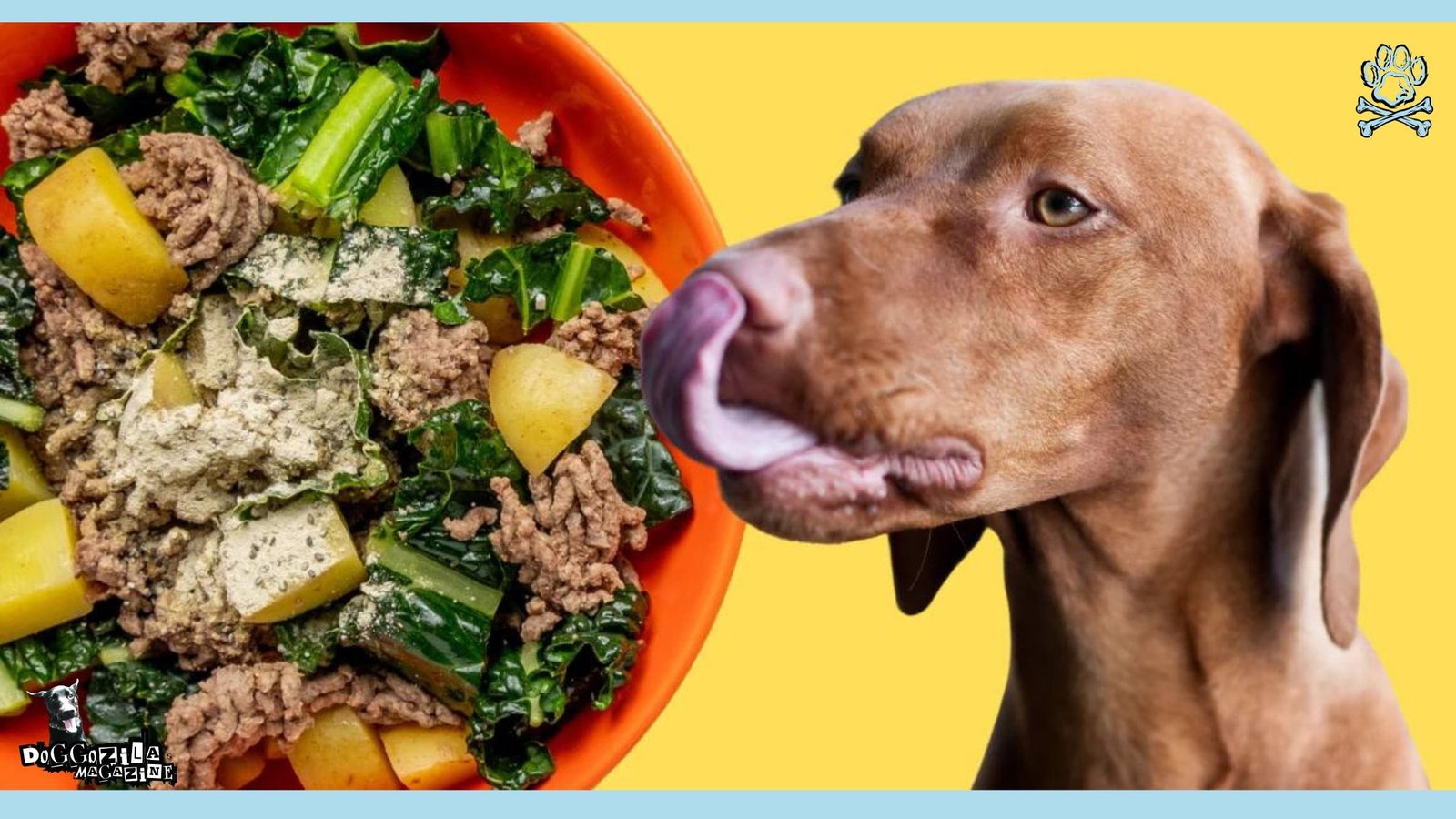
HOMEMADE RECIPES TO GET YOU STARTED FOR HEALTHY DOG DIET
Creating homemade dog diet allows for the flexibility to tailor meals to meet your dog’s individual dietary needs. It’s essential to ensure that each recipe is balanced, providing the necessary nutrients for your furry friend’s optimal health. Below are a few basic recipes to get you started, catering to various dietary requirements such as those for puppies, senior dogs, or dogs with specific health conditions like allergies or weight issues.
Puppy Power Bowl
This recipe provides the high energy and nutrients required for growing puppies. Puppies need a higher protein intake, and this recipe serves just that.
Ingredients:
- 1 cup of cooked brown rice
- 1/2 cup of cooked, lean ground turkey
- 1/2 cup of finely chopped carrots
- 1/4 cup of peas
Preparation:
- Cook the ground turkey thoroughly until it’s browned. Ensure no pink remains.
- Steam or boil the carrots and peas until they are tender.
- In a bowl, mix the cooked brown rice, ground turkey, and vegetables.
- Allow the mixture to cool before serving and store any leftovers in the refrigerator for up to three days.
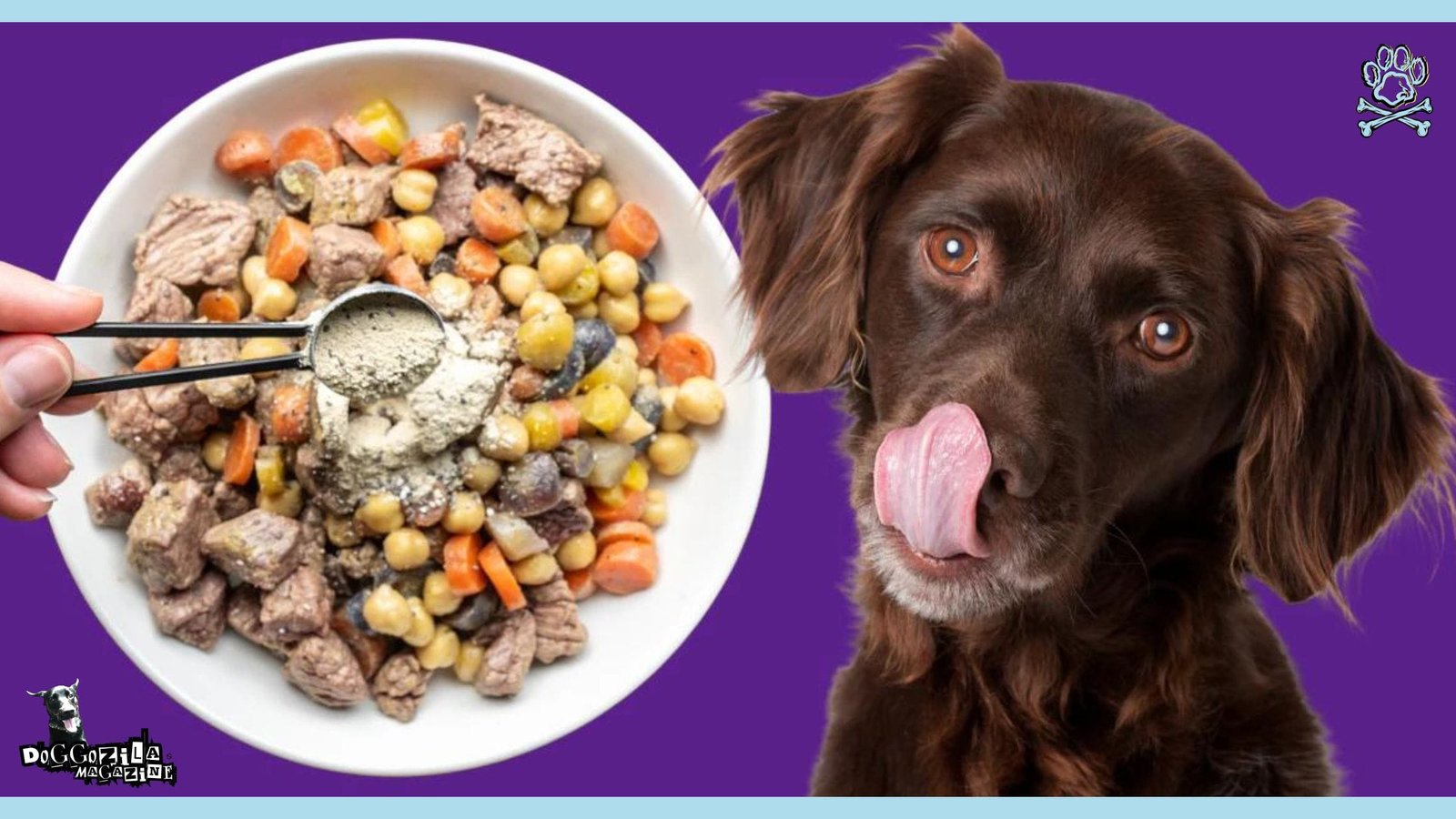
Golden Years Stew
This stew caters to senior dogs, ensuring they get easily digestible nutrients and fewer calories.
Ingredients:
- 1 cup of cooked quinoa
- 1 cup of cooked, shredded chicken breast
- 1/2 cup of sweet potatoes, cubed and cooked
- 1/2 cup of green beans, chopped
- 1 tablespoon of olive oil
Preparation:
- Follow the cooking instructions for quinoa and set it aside.
- Cook chicken breast thoroughly and shred it into smaller pieces.
- In a large pot, combine the quinoa, shredded chicken, sweet potatoes, and green beans. Add enough water to cover.
- Simmer the mixture for about 15 minutes. Add olive oil and let it cool before serving. Store any remaining food in the refrigerator for up to five days.
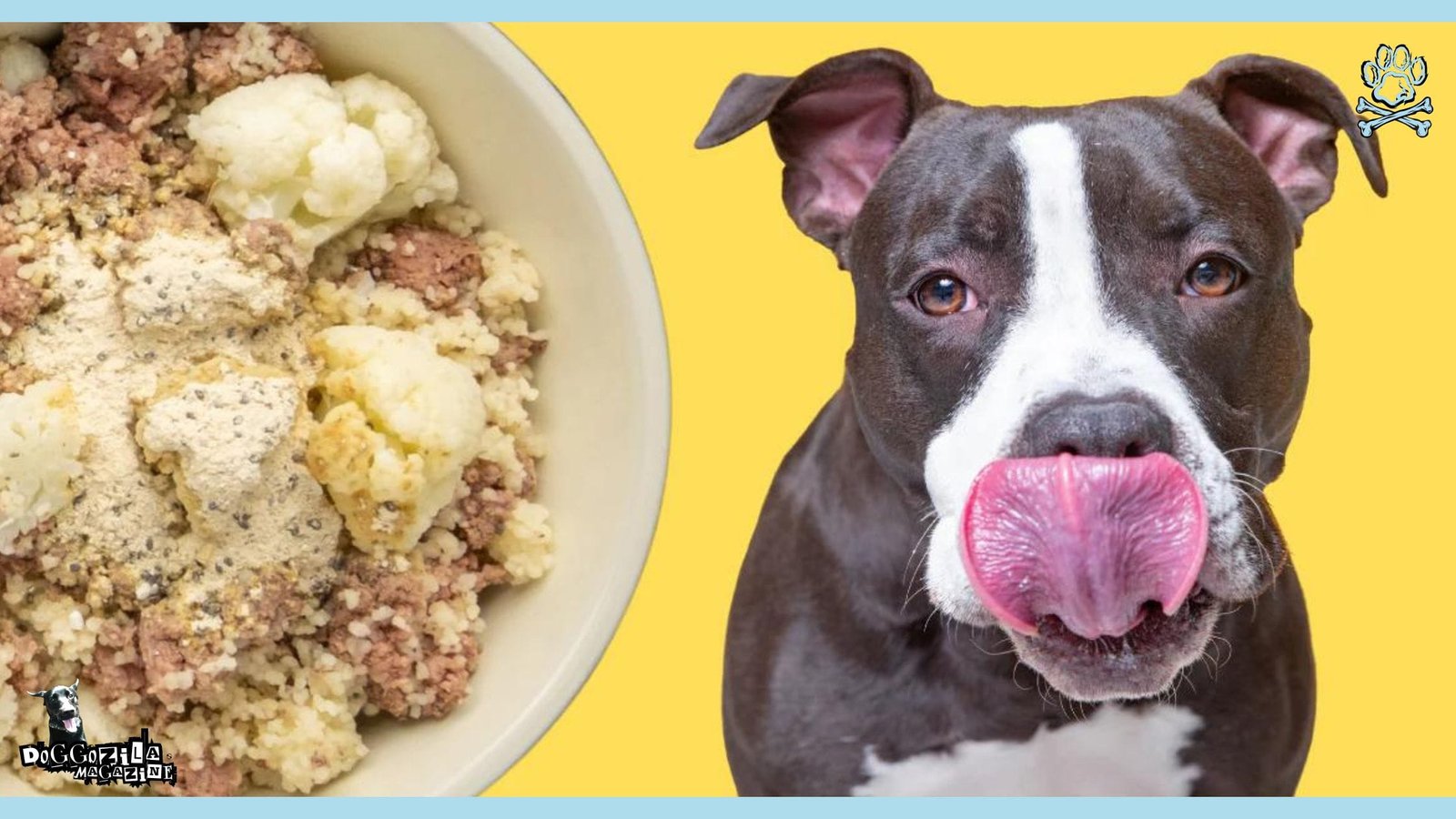
Allergy-Friendly Delight
This recipe is designed for dogs with specific allergy problems. It’s simple and avoids common allergens like wheat, beef, and dairy.
Ingredients:
- 1 cup of cooked lentils
- 1/2 cup of cooked, ground lamb
- 1/2 cup of chopped spinach
- 1/4 cup of grated zucchini
Preparation:
- Cook the lentils following package directions, ensuring they are soft.
- Brown the ground lamb, draining off any excess fat.
- Steam the spinach and zucchini until tender.
- Mix the lentils, ground lamb, spinach, and zucchini thoroughly in a bowl.
- Ensure the mixture is cooled to room temperature before serving. Store leftover portions in the fridge for up to three days.
By beginning with these basic yet nutritious recipes, you can ensure your dog’s meals are tailored to their dietary needs, whether they are an energetic puppy, a slower-paced senior, or have specific dietary restrictions.
🔑 Key Points: Always consult your veterinarian to personalize ingredients and portions suitable for your dog’s health requirements.
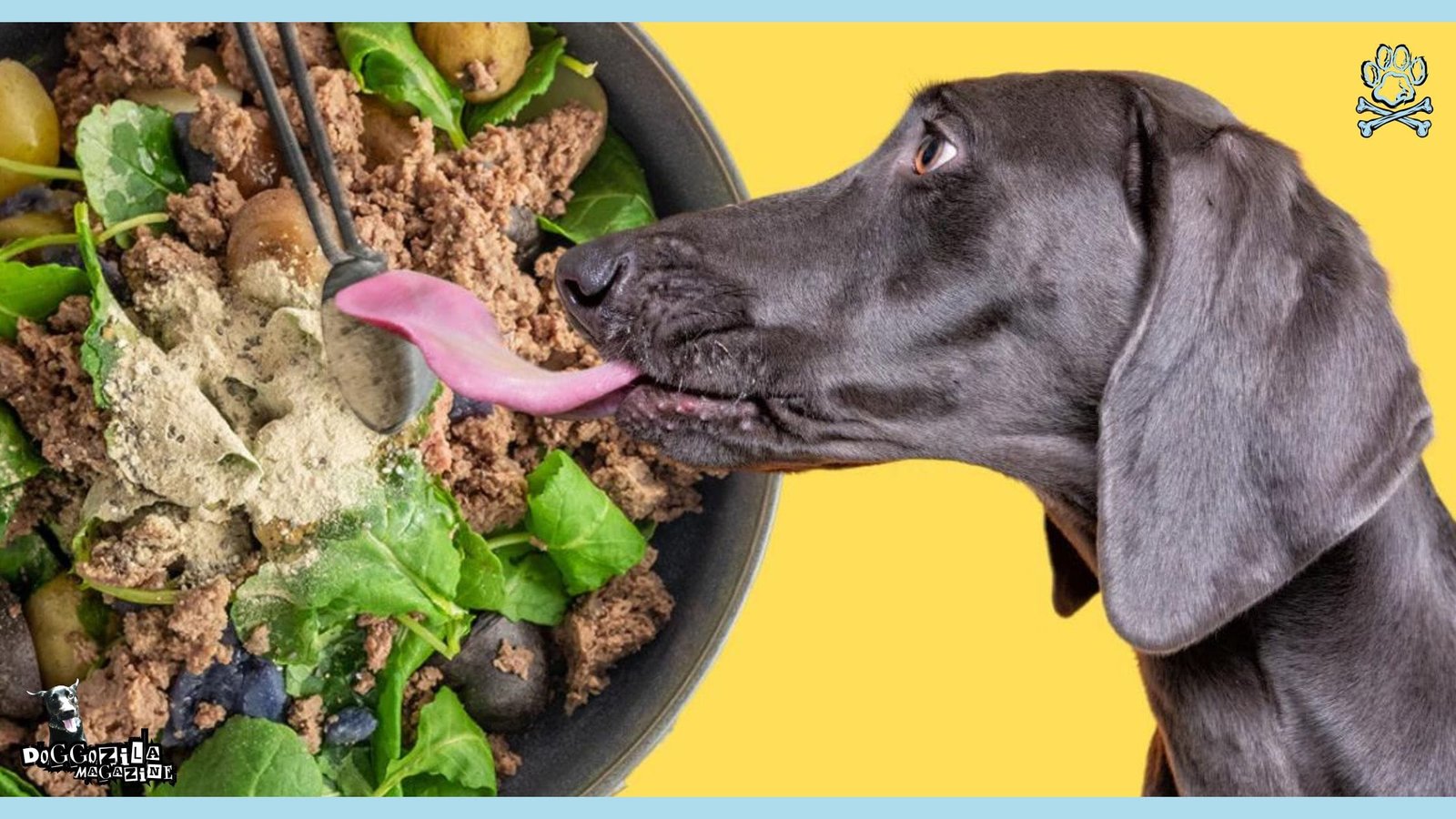
MONITORING YOUR DOG’S HEALTH
When transitioning your furry friend to a homemade dog food diet, it’s crucial to meticulously observe and assess their health and well-being. This monitoring ensures that your pet is thriving on the new nutritional plan and helps identify any potential issues early on. Key indicators of your dog’s health include their weight, energy levels, coat condition, and overall behavior. These factors can provide valuable insights into how well they are adapting to the homemade diet.
Regularly Monitor Your Dog’s Weight
Gradual adjustments are essential to successfully switch your dog’s diet without causing unnecessary stress or digestive issues. Begin by mixing small amounts of the homemade food with their current diet and increase the proportion gradually over a week or two. This slow transition helps your dog’s digestive system adapt and minimizes the risk of gastrointestinal disturbances.
Regularly monitoring your dog’s weight is vital. Rapid weight loss or gain can indicate an imbalance in their diet. Use a consistent schedule to weigh your dog and consult with your veterinarian if you notice any significant changes. In addition to weight, keep an eye on your dog’s energy levels. A well-balanced homemade diet should sustain your dog’s activity level. If your dog appears lethargic or overly hyperactive, it might signal nutritional inadequacies.
Regular Comprehensive Health Assessments by Your Veterinary
The condition of your dog’s coat is another key health indicator. A shiny, soft coat typically reflects good nutrition, while a dull, dry coat may signify deficiencies in essential fatty acids or other nutrients. Skin issues, such as excessive itching or redness, can sometimes be linked to food allergies. If these symptoms emerge, consider whether any new ingredients in the homemade diet could be culprits.
Lastly, regular veterinary check-ups are indispensable. Veterinarians can perform comprehensive health assessments, including blood tests, to ensure your dog is receiving all necessary nutrients. They can also offer personalized dietary advice tailored to your dog’s unique health needs. Through vigilant observation and collaboration with your veterinarian, you can optimize your dog’s health and well-being while enjoying the benefits of a homemade dog food diet.
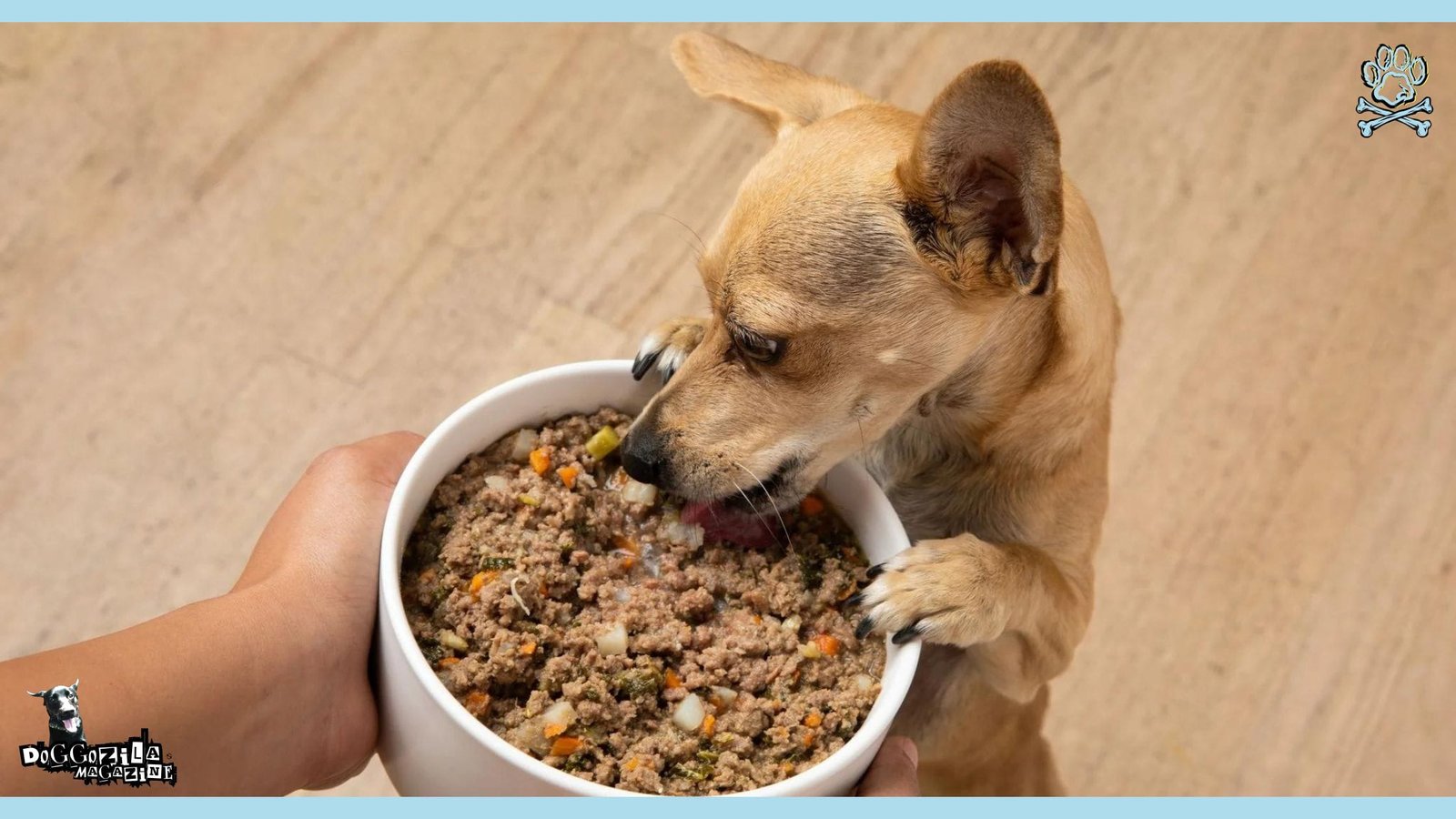
Addressing Common Concerns About the Homemade Dog Food Diet
When contemplating the shift to homemade dog diet, pet owners often grapple with several concerns. The foremost among these is the time commitment involved in preparing meals from scratch. While it’s true that homemade dog food diet can be more time-consuming than purchasing commercial kibble, planning and batch cooking can significantly mitigate this concern. Preparing large quantities and freezing individual portions can streamline the process, making it as convenient as providing store-bought options.
Another prevalent worry is cost. The perceived expense of high-quality ingredients can be daunting. However, when compared to premium commercial dog foods, homemade meals can often be more economical. Moreover, the investment in healthier food may reduce veterinary costs in the long-run by preventing diet-related issues.
Food safety is another critical aspect. Ensuring the ingredients used are fresh and properly handled is crucial. Adhering to safe food preparation practices, such as washing hands and surfaces thoroughly and avoiding cross-contamination, can help prevent foodborne illnesses in pets. Cooking ingredients to the appropriate temperatures also eliminates many potential hazards.
Activate Yourself in The Dog Communities to Share Advice and Experiences
Nutritional adequacy is perhaps the most complex concern. Ensuring a balanced diet is essential to maintain your dog’s health. Consulting with a veterinarian or a pet nutritionist can provide customized meal plans that meet all dietary requirements. Reliable resources, such as the National Research Council’s guidelines on canine nutrition, offer valuable information to help you on this journey. Additionally, there are numerous online communities and forums where pet owners share advice and experiences, creating a supportive network for those new to homemade dog diet.
Making the transition to homemade dog food diet doesn’t need to be overwhelming. With proper planning, adequate research, and a network of resources, pet owners can confidently provide their dogs with nutritious, safe, and cost-effective meals. Engaging with professionals and fellow pet enthusiasts can further enhance your journey towards a healthier and happier lifestyle for your furry friend.









